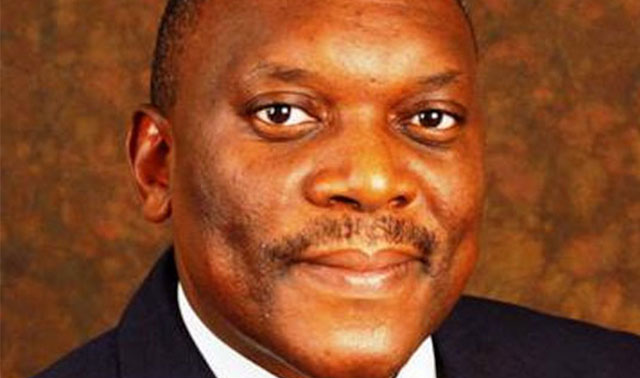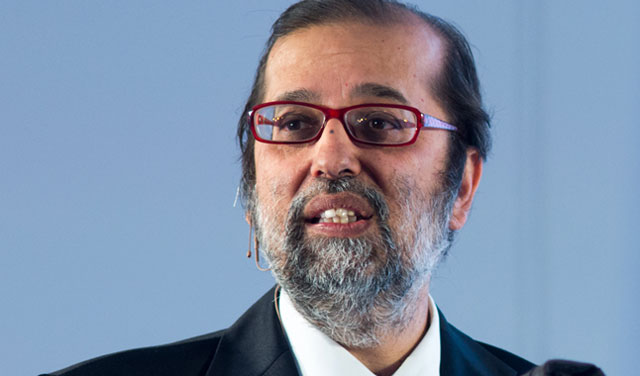 Yunus Carrim’s appointment as minister of communications in July 2013 was greeted with apprehension.
Yunus Carrim’s appointment as minister of communications in July 2013 was greeted with apprehension.
The avowed communist’s expertise lay in the local government sector. He knew nothing about technology.
In fact, he joked at the time that he barely knew how to send an SMS. His favourite tablet was Panado. And his dress sense, in the tradition of academics worldwide, could best be described as dishevelled.
At one public event, the organisers thought one of his better-dressed aides was him.
But he quickly got on top of the challenges facing the industry — even the complexities of the digital television migration project.
His successor, Siyabonga Cwele, is markedly different. Fresh from playing spooks and ladders as minister of state security, his dress sense is impeccable.
He has the latest Samsung smartphone and tablet and is adept at using them.
One of his first tasks in office was to ensure that he had the latest Jeep 4×4 — a Grand Cherokee, which has a current base list price of R724 990 — paid for by taxpayers.
A medical doctor by training, he was expected to grasp the department’s challenges by the scruff of the neck.
In the wake of the era of ousted minister Dina Pule, Carrim inherited a department and sector that he described as “fractious and fragmented”.
The director-general, Rosey Sekese, had got into trouble for lying before parliament’s portfolio committee on communications about having a signed performance agreement. Her relationship with the staff of the department and her deputy directors-general could best be described as tenuous and at worse as openly hostile. The SABC board had imploded. The Telkom share price had reached an all-time low of R11,93 just two months before. Carrim had his work cut out for him.
Yet he got to work with gusto. Within two months, he had met with 180 organisations across the industry and had gained a good grasp of the challenges facing the department and the sector.
By the end of his tenure in May 2014, barely 10 months into the job, he had achieved more than the previous three ministers of the 2009 term of government.

The Green Paper on ICT Policy was completed as was government’s broadband policy, South Africa Connect.
Carrim also managed to get four bills passed before cabinet — no mean feat considering that he was a relatively junior member of cabinet.
He was also able to smother the various factional battles within the department and get people to work. The communist had left the department and the sector in a much better state than he had found it.
To say that Cwele inherited a department that was in a rude state of health would be wrong.
The splitting of the functions of the department between the newly formed departments of communications and telecommunications & postal services, contradictory to the intentions of the Green Paper which envisaged a more integrated sector, would prove to be a poisoned chalice. And the fractious environment under Sekese, which was not resolved by Carrim, was inherited by Cwele at telecoms & postal services.
In his budget speech in July 2014, Cwele committed to completing the broadcasting digital migration process and announced that the switch-on date for dual illumination would occur within three months.
That project was snatched from under his nose by Faith Muthambi at the department of communications. It’s all quite bizarre, given the convergence between the broadcasting, telecommunications and IT.
In effect, though, Cwele has no control over the digital migration project, despite the fact that communications regulator Icasa, broadcasting signal distributor Sentech, the Universal Service & Agency Agency of South Africa and the Post Office, all of which have crucial roles to play in the project, all report into his office.
Cwele hasn’t helped matters by appointing the boss’s daughter, Thuthukile Zuma, to run his office, especially when one considers the chief of staff role, into which Zuma has been appointed, is one of the most senior appointments in government — with many in that position having more than 20 years of experience. The chief of staff serves as a vital interface between the ministry and the department, yet it’s understood that Zuma spends a significant amount of time on study leave.

Cwele appears now to be losing control of the department.
Hostility between senior staffers has broken out into open warfare.
Sekese, apparently in defiance of Cwele, fired her deputy director-general Gift Buthelezi — by SMS! Departmental staff are said to live in fear of Sekese, while work has ground to a halt.
Through all of this, Cwele appears nonchalant, seemingly unaware or unable to deal with the challenges facing the department or the sector.
Unfortunately, this reflects the general attitude of government to the technology industry. The past few years have seen the demise of various ministers of the ICT portfolio, yet the same senior officials remain behind at the department to direct matters. One has to ask whose interests this serves.
When one considers the power of broadband to grow the economy, it’s unfortunate that government’s management of ICT is such a mess.
Ironically, we may have had a better chance of stimulating economic growth by leaving these matters in the hands of an avowed communist. — © 2015 NewsCentral Media
- Sunil Gopal is senior journalist at TechCentral. He previously worked at the departments of communications and telecommunications & postal services




